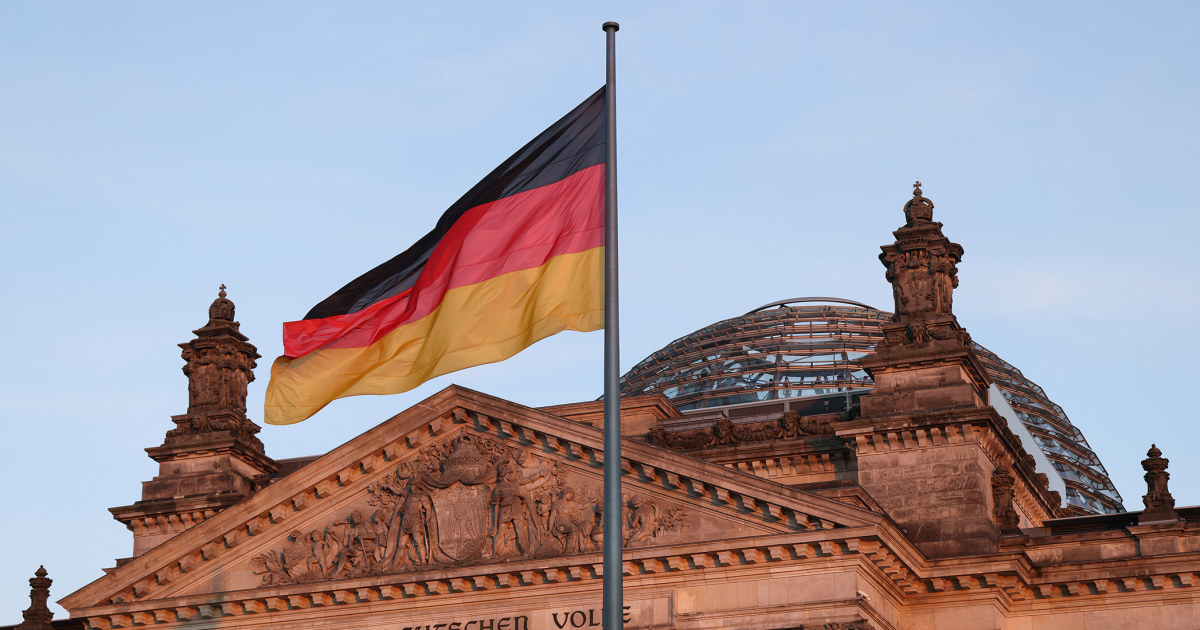German conservatives lead election with far-right AfD in second place, exit polls show

BERLIN — Alternative for Germany, a far-right political party under surveillance by intelligence services for suspected extremism, made huge gains in the German general election Sunday, with the center-right Christian Democratic Union likely to lead coalition talks to form the next government.
The AfD, whose supporters include Elon Musk and others in the White House, is in second place with 19.8% of the vote, according to an exit poll published at 6:21 p.m. local time (12:21 p.m. ET). The CDU led the poll with 28.7%, meaning its leader Friedrich Merz will lead negotiations with other parties to form the next government.
The AfD is unlikely to be part of the government, as Germany’s coalition system requires cooperation among parties, and the others have refused to collaborate with the far-right group. But the party’s rise into the political mainstream has appalled large swaths of a country deeply aware of its Nazi past.
It’s part of a wider surge of the far right in Europe, whose proponents are already forging connections with Trump’s White House. The AfD’s ascent has come amid a spate of attacks across Germany, some of them by people with a migrant background. Also on the agenda has been Germany’s stagnant economy and the war in Ukraine.
AfD leader Alice Weidel called the result a “glorious” success in a television speech following the exit poll. This marks the best outcome for her 12-year-old party, doubling its vote share from the last election in 2021.
The current leader of Germany, Chancellor Olaf Scholz appears to have been voted out of office, his Social Democratic Party achieving only 16% in the exit poll. Scholz called it a “bitter result” but emphasized that the far right is something “we must never accept.”
Scholz, aghast at the interventions of the Trump White House on behalf of the AfD, called Musk’s vocal support for the party “disgusting.” In recent months, Musk has become an ardent supporter of the anti-immigration, anti-Muslim party, while Vice President JD Vance has also pledged support.
President Donald Trump refrained from naming a party, but hailed the election as a “great day for Germany” on his Truth Social platform.
“Looks like the conservative party in Germany has won the very big and highly anticipated election,” he wrote. “Much like the USA, the people of Germany got tired of the no common sense agenda, especially on energy and immigration, that has prevailed for so many years.”
The socialist Die Linke party appears to have done better than expected, with 8.5%, while the pro-business Freedom Party and left-wing populist Sahra Wagenknecht Alliance will be battling to achieve the 5% needed to enter the German parliament, the Bundestag.
Germany’s electoral system makes it very difficult for one party to govern alone. Parties must form cross-party coalitions, with negotiations taking weeks or even months.
Merz’s CDU will lead talks, with the SPD and the Greens as potential partners. All have vowed to shun the AfD.
The AfD’s second-place position has sparked alarm across Germany. Outside the party’s election venue in a northern Berlin suburb, around 200 protesters gathered, setting off a deafening 1960s-era “catastrophe siren” primarily meant to warn of nuclear attacks. This time, it was heralding what its operators said was a democratic emergency.
“This is a warning about the outcome of fascism in Germany,” said Stefan Pelzer, 38, who runs the Center for Political Beauty activist group and organized the demonstration.
Pelzer said the siren, which vibrated rib cages and the ground under them, was mounted on the back of a retrofitted ex-prison truck and could be heard for nearly 10 miles. Riot police eventually stormed the vehicle and silenced the device.
Protesters held signs calling the AfD “Nazis” and more profane monikers. Dozens of police officers kept them 100 yards from the AfD event where Weidel and others celebrated.
Back in the center of Berlin’s historic Ständige Vertretung pub, where patrons where chowing down on fried meatballs and German sausages, election watchers expressed mixed emotions.
Sabine Teichmann, 66, a retired nurse, said she doesn’t like the far right but believed excluding them from democratic talks was a mistake. “I don’t like the AfD — they like Putin and I hate Putin — but it’s important to talk to them,” she said.
Jens Singer, 57, a comedian from Cologne, lamented the center-left SPD’s poor performance.
“It’s like the Democrats in the USA,” he said. “They lost sight of the working class. We need two strong parties on the left and right,” added Singer, a former SPD voter from a working-class background who said he stopped voting for them because “they became disconnected from my people.”